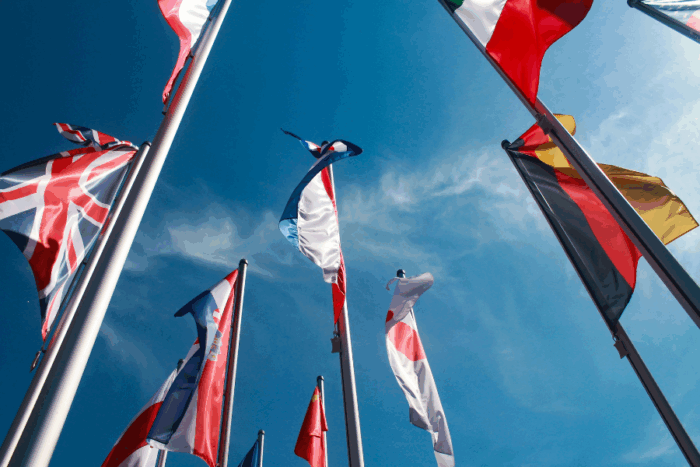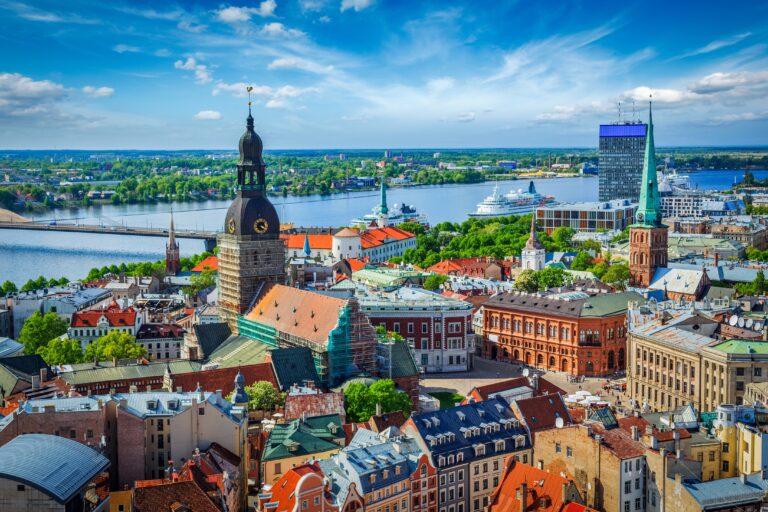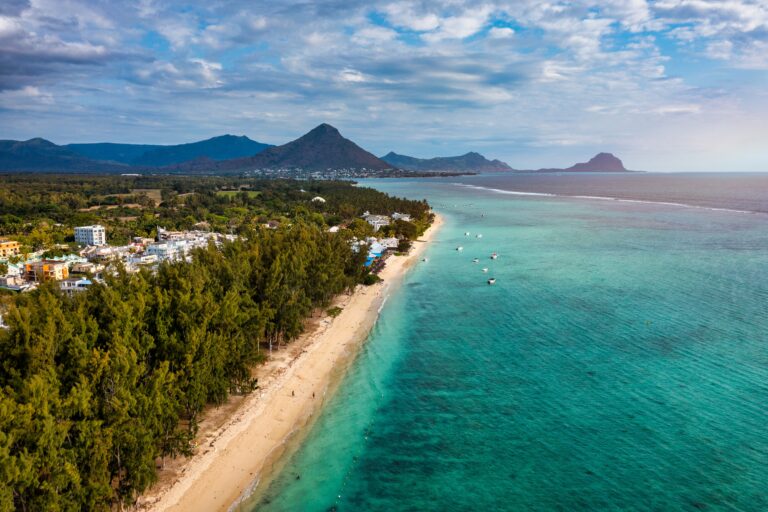- Home
- Articles
- Global Citizen
- Why Legacy Brand Countries (US, UK, Canada) Aren’t the Best Anymore
Why Legacy Brand Countries (US, UK, Canada) Aren’t the Best Anymore
May 22, 2025
The first step in solving any problem is admitting there is one.
For decades, countries like the US, UK and Canada – once considered the gold standard of prosperity – have been in steady decline.
This isn’t a matter of opinion that’s open for debate. The data tells the story: rising crime, unaffordable housing, overburdened healthcare systems, economic stagnation, eroding trust in institutions and political instability.
The West is no longer leading the world. Power is shifting, and these so-called ‘legacy brand’ nations are falling behind.
Citizens can sense it. They’re working harder, paying more and getting less in return. Their living standards are slipping, and the promise of a better future feels as though it’s slipping increasingly farther out of reach.
If that sounds familiar – if you feel like you’ve done everything right but still aren’t getting ahead – you’re not imagining it. And you’re not alone.
The good news? You have options: There are countries where your money goes further, your lifestyle improves, and you’re not punished for success or innovation.
But none of that happens automatically. You need to take the first step. After all, if things aren’t working out where you are, what do you really have to lose by leaving?
At Nomad Capitalist, we help people like you go where you’re treated best, places where opportunity still exists, and your future is truly your own. Our team has put together this guide to the countries where that’s more than just a promise.
Global Power Dynamics are Shifting

The global balance of power is shifting away from the West as countries in Asia and Latin America assert themselves not just economically, but politically and culturally.
Their ascent is gradually eroding the long-standing dominance of Western legacy nations. Lest anyone think this is part of a natural cycle, it’s not – it reflects a broader, more sustained decline in the West.
That decline goes beyond measurable factors like economic stagnation or political dysfunction. It touches on something more intangible but just as important: a loss of optimism. What once made America – and the West in general – a symbol of opportunity and freedom is now increasingly under threat.
Is the US Still the Land of Opportunity?
At Nomad Capitalist, we help seven- and eight-figure entrepreneurs and investors legally go where they’re treated best.
In many cases, that’s meant advising US citizens on why – and how – they should leave the United States.
We make no apologies for that. But, over the years, that stance has drawn criticism and even accusations of bias against the United States.
That’s not the case. Like any country, the US has its strengths. But it also has its weaknesses and we’re not blind to those limitations.
The real question should always be: Are there enough positives left to justify living, working and investing there as a citizen?
We’ve reached the conclusion, as have many of the people we advise, that the answer is no.
When a country is marketed as number one but no longer lives up to that promise, it’s time to question what you’re being told.
Many people still believe the hype of the legacy brand nations and their guarantee of privileges that can’t be found elsewhere. After all, it was true – once upon a time.
But as the new millennium moves forward, it’s become increasingly difficult to view the United States as anything other than one of the world’s most successful branding operations.
People have started to see it for what it is, as a result, more Americans than ever are choosing to leave.
Across nearly every metric – economic freedom, personal liberty, press freedom, quality of life and income – the US is slipping. It’s no longer the best place to be born.
It’s not alone. Canada, too, is struggling. Living standards are declining as economic growth fails to keep pace with rapid population increases.
Political and civil liberties in the West are eroding as quickly as financial freedom. At the same as ending its long-standing non-dom regime and sending an exodus of high-net-worth individuals (HNWIs), the UK has also seen increasing restrictions on fundamental freedoms such as the right to protest.
France, once a pillar of European democracy, was downgraded to a ‘flawed democracy’ in the EU’s 2024 Democracy Index, due to its poorly functioning government.
So, the questions arise:
- Are these still places where your dreams can come true?
- Is there a sense of optimism that if you work hard and do everything right, you’ll succeed?
For many people, the answer is ‘no’ and that uncertainty has consequences.
Because, not only are your prospects dimming, you’re paying heavily for the privilege and the price continues to rise. Cost of living in these countries is going through the roof, tax rates in these countries are increasing, and income is diminishing – especially when measured against what you receive in return.
Why Legacy Countries Aren’t the Best Anymore
It’s clear that the gradual withering of Western living standards, security and overall wellbeing is no longer a vague concern.
But to truly understand the decline of these legacy brand countries, we need to go beyond sentiment and look at the hard data.
Countries like the US, UK and Canada continue to position themselves as world leaders, but the numbers increasingly tell a different story:
- Cost of Living: The Federal Reserve’s Economic Wellbeing report found that 65% of US adults believed rising prices had worsened their financial position. Across the West, declining living standards, financial stress and poor work-life balance, are leaving many struggling.
- Economy: In 2024, major Western economies experienced a slowdown in growth, with many developed countries facing high interest rates, slowing consumer spending and labour market weakness.
- Healthcare: Budgetary constraints and government underfunding are straining healthcare systems. In Canada, almost one in ten people report unmet healthcare needs, a trend that’s only set to worsen in 2025.
- Education: A projected 10% drop in US high school graduates by 2041 (across 38 states) reflects long-term educational and demographic challenges, according to data from the Western Interstate Commission.
- Crime rates: In 2024, Canada saw a rise in both violent and property crime. In the US, 64% of adults believed crime had increased over the previous year. The UK’s Central Statistics Office estimates that crime (robbery, criminal damage, fraud, computer misuse, and violence) rose 14% in 2024.
- Work and Opportunity: While overall unemployment rates are low in some Western countries, youth unemployment is a concern. Notably, labour market imbalances grew, especially in sectors hit by automation, outsourcing and shifting demand.
The 2025 World Happiness Report
One of the most telling numbers is the measure of happiness that people feel in Western legacy nations.
Reinforcing the idea of decline in the West, the 2025 World Happiness Report reported:
- The United States ranked 24th, its lowest ranking since 2012, when the report began.
- The UK ranked 23rd, the lowest it has ranked since 2017.
- Canada ranked 18th, down from 15th in 2023 and 5th in 2012.
Are You Paying More for Less?
People in legacy brand countries are paying more taxes than ever, and getting less in return. In effect, they’re paying five-star prices for three-star hotels and, increasingly, they’re not even getting that.
At the same time, personal freedoms are being eroded. Citizens are watching governments growing more and more out of touch, yet continually making greater demands.
This has become a defining feature of places like the US, Canada and the UK. Laws are getting stricter, not because things are improving but because governments are reluctantly reacting to growing desperation and unrest.
The short version is that people feel poorer, both financially and socially. Global competition is rising fast and the ‘work hard and get ahead’ dream is fading just as quickly.
For the first time in decades, the West is feeling the pressure. Once-dominant economies are losing their edge – contributing to financial instability, social tension and deepening political divides.
To maintain control, Western governments are veering towards being heavy-handed, passing restrictive legislation and being more aggressive in how much of your money they take.
It’s little surprise that people want out.
Fortunately, there are countries that take a lighter-touch approach: places that respect your freedom, impose lower taxes, offer affordable real estate, and provide quality healthcare, education and access to investment in growing markets.
Until you’ve experienced life in one of these countries, it can be difficult to grasp how much better things can be.
Leaving America: FAQs
If a person leaves the US, they must still report and pay taxes on any foreign income and income from US assets. If you renounce US citizenship, the government imposes a market-to-market exit tax on all your assets on the day of your expatriation. The exit tax applies to those who have a net worth of over US$2 million, anyone who is not tax compliant, or anyone with an average net income tax over the past five years that exceeds the threshold.
It is an irreversible legal process that allows you to formally relinquish US nationality. If you renounce, you give up any rights that come with US citizenship. This includes voting in US elections, receiving consular assistance abroad, bestowing US citizenship on children born overseas and accessing the US job market.
Yes, but you will be treated like any other non-US citizen. Generally speaking, you will have to have a Visa Waiver and an approved Electronic System for Travel Authorisation (ESTA) and limit your stay to that specified by immigration.
Yes. You can potentially lower your taxes without renouncing by choosing to live overseas or moving to a US Territory like Puerto Rico.
A report by the US Immigration Advice Service found that 25% of citizens are considering international relocation. Interest in leaving America is strongest in the East and West Coast cities, with 35% of New Yorkers and 47% of Los Angeles residents considering relocation.
Countries like the United Kingdom, Australia and Canada have historically been popular with US expats for cultural and language reasons. But given the general decline in the West, countries like Mexico, Brazil and Costa Rica are becoming ever more popular for their geographic proximity to North America, lack of red tape and lower cost of living.
How to Plan Your Exit Strategy

We routinely hear from people who are seriously considering leaving the United States and want a clear, actionable exit strategy.
For some there are concerns about the healthcare system or rising crime, while for others it’s about the erosion of personal and financial freedom and an ever-encroaching IRS.
Whatever the issue, people are refusing to stand for it and realising that they have options: tolerate things; stay and try to change the system; leave and build a life on your own terms.
In Latin America, the contrast is striking. Countries like Costa Rica, Panama, Uruguay and Paraguay, offer less government overreach, more personal freedom, lower living costs and territorial tax systems that leave your worldwide income alone.
The same is true of Asia: Hong Kong, Malaysia, Thailand and Singapore are all exciting, low-tax locations with abundant opportunities for foreigners.
There are multiple residency options in these regions and various routes to second citizenship, such as naturalisation, marriage, descent or investment.
If you’re a US citizen, it’s important to understand that you will never fully be free of the IRS unless you renounce your citizenship. While you can live overseas in a more tax-efficient way, you’ll still be required to report your income and pay taxes to the US government as long as you hold that passport.
That’s why having a Plan B passport is more than a luxury – it’s a strategic asset. Acquiring one will give you flexibility, freedom and the ability to chart your own course.
The global power balance is shifting, and so should your thinking. The old guard is no longer the only game in town, and you should go where you’re treated best.
Travel, invest and bank where the rules benefit you. Pay tax where it makes sense.
All it takes is a shift in mindset – and a well-executed plan.
That’s where Nomad Capitalist comes in.
We help seven- and eight-figure entrepreneurs and investors create bespoke strategies using our uniquely successful methods. These strategies allow you to keep more money, create new wealth faster, and be protected from whatever happens in three steps.
We work with a global network of trusted professionals – lawyers, estate agents, accountants and specialists in tax and company formation. Their expertise, combined with our real-world experience, informs every holistic, bespoke strategy we create. Discover how we turn ideas into action.



Latvia Real Estate Investment for Expats: Eligibility, Taxes, and Benefits
Purchasing real estate in Latvia is a popular investment strategy for wealthy expats seeking affordable property ownership opportunities that may lead to Latvian residency. The country is known for low investment requirements, minimal restrictions on foreign property ownership, and low property tax rates. In this guide, we will explain the rules for buying Latvia real […]
Read more

Mauritius Residency Requirements 2026: A Complete Guide
Thanks to its favorable tax policies, political stability, and a relaxed and family-focused lifestyle, Mauritius is one of the premier relocation destinations for high-net-worth individuals. You can get Mauritius residency through one of several residency programs, including those aimed at business and property investors. In this article, we’ll explain the Mauritius residency requirements for each […]
Read more

UAE Golden Visa: Requirements, Application Process, and Advantages Explained
The UAE Golden Visa allows high-net-worth expats to invest, work in, and relocate to the Emirates while benefiting from its zero-tax system and high living standards. There are several paths to the Golden Visa, and understanding which one is right for you can make a significant difference in your residency process. In this guide, we’ll […]
Read more





